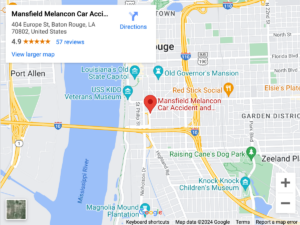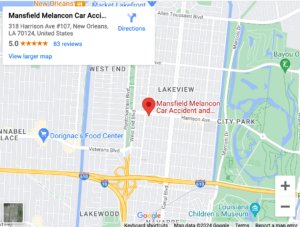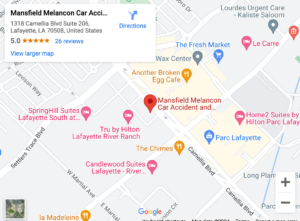
If you were hurt because of someone else’s carelessness or wrongdoing, you might be entitled to file a personal injury claim under Louisiana law. Understanding the burden of proof is key to knowing your legal rights and what compensation you may be able to recover for your injuries.
Most personal injury cases, such as car accidents, slips and falls, and medical malpractice, rely on this important legal concept.
What Is the Burden of Proof?

The burden of proof refers to the obligation to prove the allegations made in a legal claim. In civil cases like personal injury lawsuits, the burden of proof lies with the plaintiff — the person who brings the claim. This means you must present enough evidence to convince the court that the defendant is legally responsible for your injuries.
In Louisiana, as in most states, the standard used in personal injury cases is “preponderance of the evidence.” This means you must show that it is more likely than not that the defendant’s actions caused your injuries. In other words, there’s a greater than 50% chance that your claim is true.
How Does the Burden of Proof Apply in Personal Injury Cases?
To meet the burden of proof in a Louisiana personal injury case, you must generally establish the four legal elements of negligence:
Duty of Care
First, you need to show that the defendant owed you a duty of care. This means they had a legal obligation to act reasonably to prevent harm. For example, drivers must follow traffic laws to keep others safe on the road, and property owners must maintain their premises to prevent accidents.
Breach of Duty
Next, you must prove that the defendant breached that duty by acting negligently. A breach occurs when someone fails to act as a reasonably prudent person would under similar circumstances. Examples include texting while driving or failing to fix a hazardous condition on one’s property.
Causation
The third element is causation. You need to demonstrate that the defendant’s breach of duty directly caused your injuries. This involves two components:
- Cause in Fact: Your injuries would not have occurred “but for” the defendant’s actions.
- Proximate Cause: The harm was a foreseeable result of the defendant’s negligence.
Both types of causation must be present to succeed with your claim.
Damages
Finally, you must show that you suffered actual damages because of the defendant’s actions. This includes physical injuries, medical expenses, lost wages, property damage, and pain and suffering.
In most cases, at least one of these elements will be contested by the defendant, making it essential to gather strong evidence to support your claim.
Considerations in Louisiana Law Regarding Burden of Proof
Louisiana follows a unique legal system based on civil law rather than common law, which can affect personal injury cases. One important aspect is the state’s comparative negligence rule.
Pure Comparative Negligence
Louisiana has a pure comparative negligence law. This means that even if you are partially at fault for the accident, you can still recover damages. However, your compensation will be reduced by your percentage of fault.
For example, if you are found to be 30% responsible for an accident and your total damages amount to $100,000, you would receive $70,000 after a 30% reduction.
It’s crucial to note that the burden of proving your percentage of fault also falls under the burden of proof. The defendant may try to show that you share the blame to reduce their liability.
Statute of Limitations
In Louisiana, the statute of limitations for most personal injury claims is two years from the date of the accident. This is a strict deadline, and failing to file your lawsuit within this time frame may bar you from recovering any compensation.
What Damages Can I Recover in a Louisiana Personal Injury Claim?
Victims of personal injury in Louisiana can recover both economic and non-economic damages.
Economic damages are tangible losses that can be calculated, such as:
- Medical expenses
- Lost wages and loss of earning capacity
- Property damage
- Out-of-pocket expenses related to your injury
Non-economic damages compensate for intangible losses, including:
- Pain and suffering
- Emotional distress
- Loss of enjoyment of life
- Disability or disfigurement
Punitive damages are rare in Louisiana and are only awarded in specific cases, such as those involving drunk driving. They are meant to punish the defendant for particularly egregious behavior. These damages also usually require “clear and convincing evidence,” a stronger burden of proof than for the other kinds of damages.
Schedule a Free Consultation With a Baton Rouge Personal Injury Lawyer
If you’ve been injured due to someone else’s negligence, understanding the burden of proof is essential to your case. Navigating the legal system can be challenging, but you don’t have to do it alone.
For more information, please contact Mansfield Melancon Car Accident and Personal Injury Lawyers at (504)-788-1393 to schedule a free consultation with a personal injury lawyer in Lafayette, LA today.



